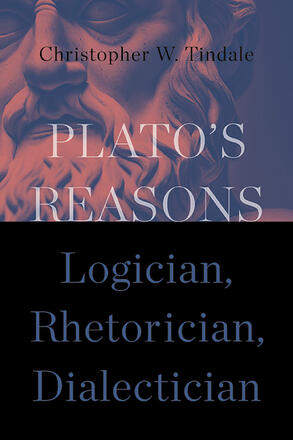
Plato's Reasons
Logician, Rhetorician, Dialectician
Alternative formats available from:
Studies Plato's approach to argumentation, exploring his role as logician, rhetorician, and dialectician in a way that sees these three aspects working together.
Description
This book explores Plato's implicit understanding of argumentation by reviewing his standing as a logician, rhetorician, and dialectician. The question of his "standing" on these matters is approached on his terms (gleaned from the dialogues) rather than simply from the judgments of commentators. Traditionally, arguments are distinguished as logical, rhetorical, or dialectical, and the source of these distinctions is taken to be Aristotle. This book proceeds on the assumption that Aristotle's tripartite theory of argumentation did not arise in a vacuum and explores the different degrees to which substantive antecedents of parts of that model can be traced to Plato.
Christopher W. Tindale is Director of the Centre for Research in Reasoning, Argumentation, and Rhetoric at the University of Windsor in Canada. He is the author of How We Argue: 30 Lessons in Persuasive Communication and The Anthropology of Argument: Cultural Foundations of Rhetoric and Reason, among other books.
Reviews
"Tindale has done an admirable job of showing that Plato's ambivalent relationship with rhetoric doesn't end with middle dialogues such as the Gorgias and Phaedrus. He convincingly demonstrates that Plato not only continues to keep rhetoric in the forefront of his later dialogues, but also rehabilitates it and grants it a significant, albeit subordinate role to play." — John Harris, University of Alberta
"This is a groundbreaking work that contributes in a masterful way not to just one field but several, such as Platonic philosophy, rhetoric, and theory of argumentation. Tindale also provides a link between classical philosophy and modern issues of informal logic. For the first time, the classical triad of logic, rhetoric, and dialectic central to informal logic and argumentation theory are applied to the complete oeuvre of Plato." — Manfred Kraus, University of Tübingen, Germany